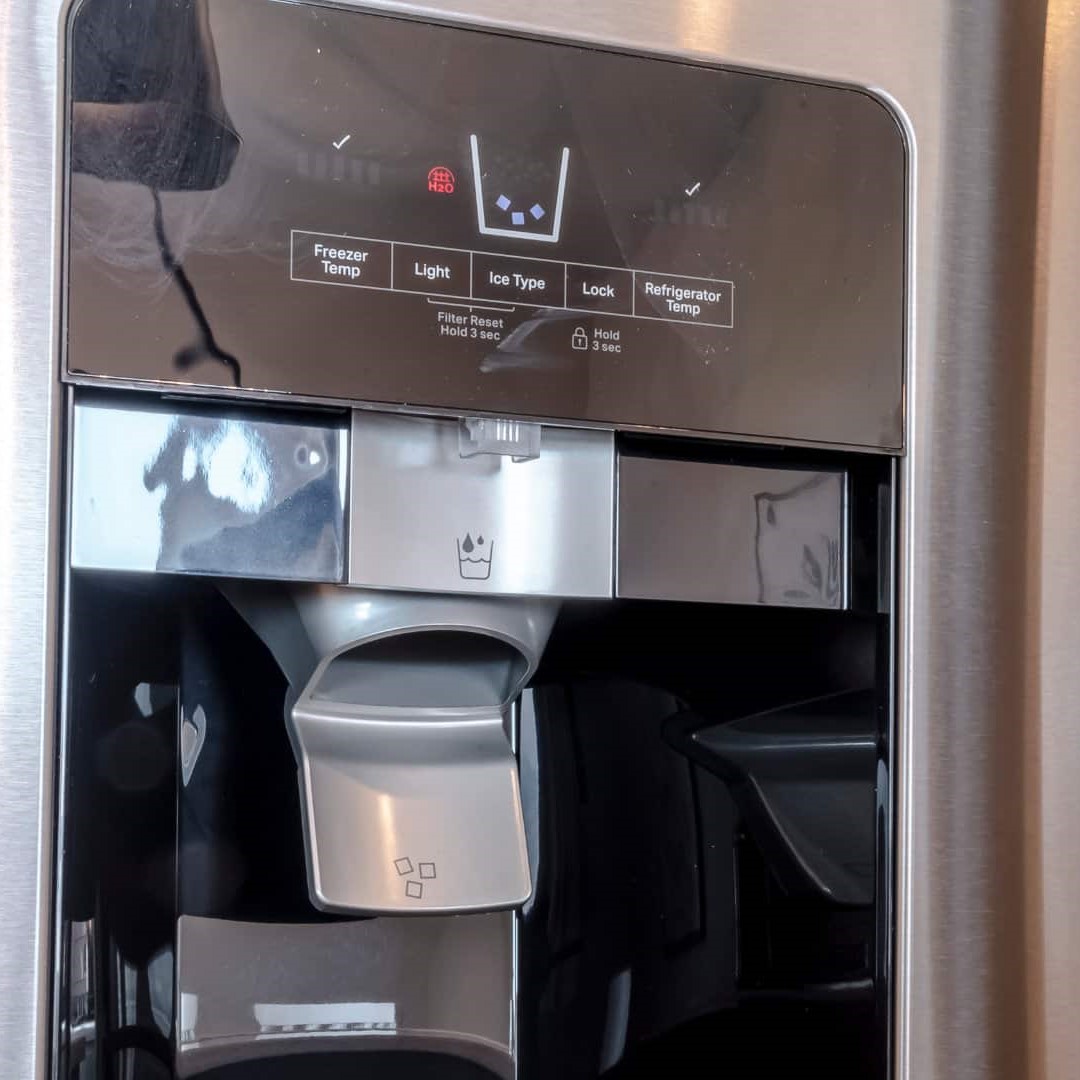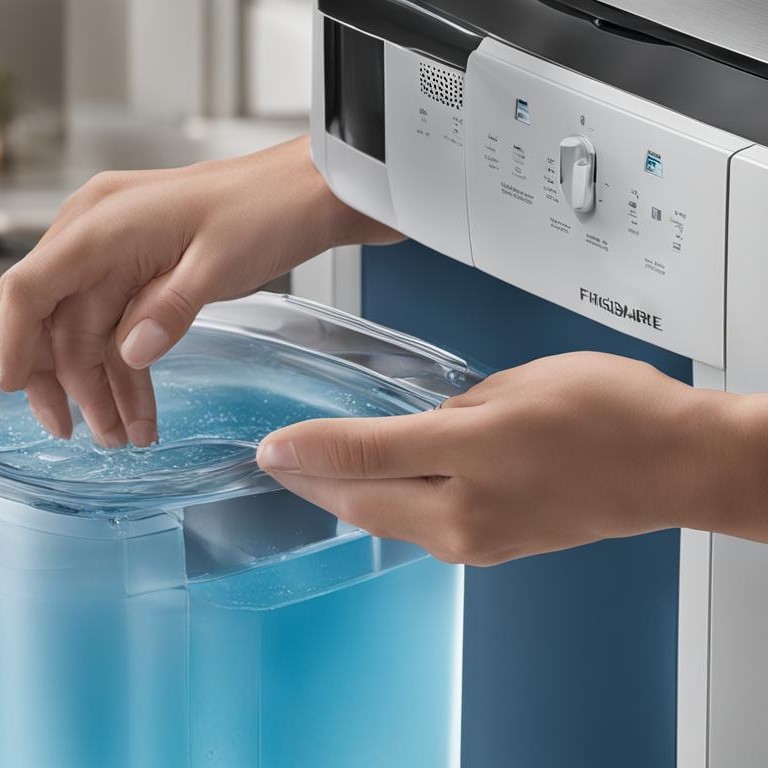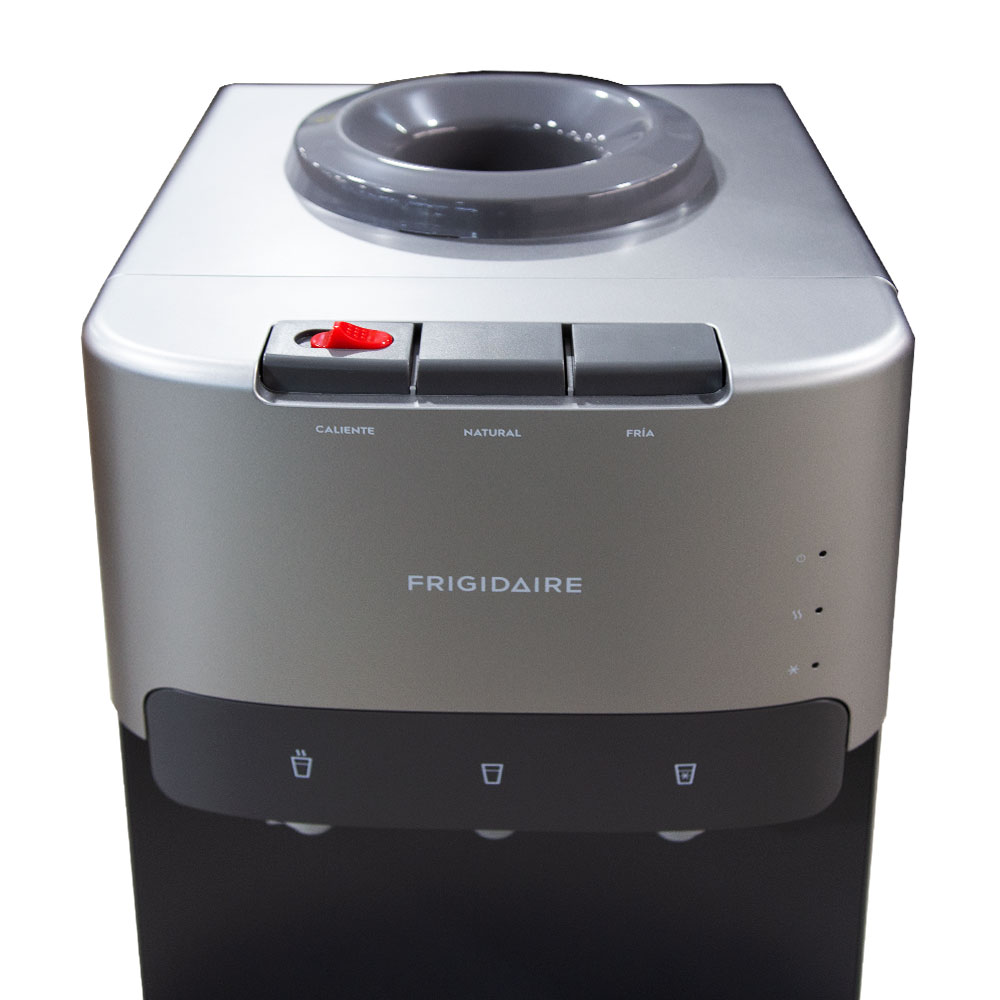Common Causes of a Slow Water Dispenser
A Frigidaire water dispenser may run slow due to several common issues. Here are some factors that can affect the water flow:

- Clogged Water Filter: Over time, water filters can collect impurities and sediment, reducing water flow. Regular replacement is essential.
- Air Trapped in the Line: Air pockets in the water line can interrupt the water flow. This can happen after filter changes or initial installation.
- Low Water Pressure: If the household water pressure is too low, it can impact how your dispenser functions. Check if other faucets also have low pressure.
- Frozen Water Line: In some cases, the water line leading to the dispenser can freeze, particularly in colder environments or if the freezer settings are too high.
- Faulty Water Inlet Valve: The valve that opens to allow water to dispense can malfunction or wear out, which decreases water flow.
Understanding these common causes can help in diagnosing why a Frigidaire water dispenser is slow. Next steps involve specific diagnostics and possible solutions to these problems.
Steps to Diagnose Your Frigidaire Water Dispenser Issues
Diagnosing Frigidaire water dispenser issues is straightforward with a few systematic steps. Start by identifying the most common problems such as a clogged filter, air traps, or low water pressure. Here’s a detailed guide to help you pinpoint the problem:
- Inspect the Water Filter: Begin by checking the water filter. A clogged water filter is a frequent cause for slow water dispensers. If it looks dirty or has been in use beyond its recommended life span, replace it.
- Check for Air in the Lines: After replacing the filter, check if there’s any air trapped in the lines. Run the dispenser for a few minutes. This might help clear out any air bubbles blocking the flow.
- Test Water Pressure: Evaluate the water pressure to the dispenser. Use a pressure gauge or simply check if other faucets in the house also suffer from low pressure. If the pressure is low throughout the house, consider consulting a plumber.
- Examine the Water Inlet Valve: Look into the water inlet valve. If it’s defective, it won’t open properly to allow water to flow. In this case, replacing the valve is necessary.
- Troubleshoot the Water Line: Ensure that the water line is not frozen or damaged. Thaw it carefully if it’s frozen, and replace it if you notice any physical damage.
Each step should bring you closer to resolving the issue. If all else fails, it might be time to seek professional assistance. Always turn off the water supply before making any repairs to avoid leaks and water damage.
How to Replace a Frigidaire Water Filter
Replacing your Frigidaire water filter is a simple process. Follow these steps to ensure proper installation and function:
- Locate the Filter: Find the filter compartment. It’s usually at the top-right corner inside your refrigerator or in the grille at the bottom.
- Remove the Old Filter: Gently release the old filter. For some models, you push it in and twist counterclockwise. For others, you may simply need to pull it out.
- Insert the New Filter: Take the new filter out of its packaging. Remove protective caps. Align it correctly with the filter housing. Push it in and twist clockwise or just push straight in until it clicks, depending on your model.
- Flush the System: Run water through the dispenser for about 3 to 5 minutes. This will clean out any impurities and remove air from the lines.
- Check for Leaks: Look for leaks after installing the new filter. If you see any, recheck the filter placement for proper fit and seal.
- Reset the Filter Indicator: If your appliance has one, reset the filter change indicator. This is usually done by pressing and holding a button near the dispenser.
Always refer to your Frigidaire owner’s manual for the model-specific filter replacement procedure. Use filters compatible with your appliance to maintain optimum performance. Regular replacement every six months is recommended. This can prevent frigidaire water dispenser slow issues related to clogging.
 Troubleshooting a Clogged Water Line
Troubleshooting a Clogged Water Line
Encountering a slowed or halted water flow in your Frigidaire dispenser could often point to a clogged water line. Follow these steps to troubleshoot and resolve the issue efficiently:
- Turn Off the Water Supply: Always start by shutting off the water supply to prevent any leaks while you work.
- Inspect the Water Line: Check along the water line for any kinks or bends that might be causing blockages. Straighten out kinks gently to restore flow.
- Flushing the Line: Disconnect the water line from both ends – the Frigidaire dispenser and the water source. Use a mixture of vinegar and water to flush the line. This helps dissolve mineral deposits or impurities.
- Check for External Damage: Examine the line for any cracks or damage. Replace the line if any damage is found to ensure durability and prevent future issues.
- Reconnect the Line: After cleaning, reconnect the water line securely. Turn the water supply back on and test by running the dispenser.
- Monitor Water Flow: If the flow is restored, your problem is likely fixed. If the flow is still slow, consider further diagnostics, like checking water pressure or consulting a professional.
Troubleshooting a clogged water line can restore your Frigidaire water dispenser to optimal performance and prevent frigidaire water dispenser slow issues from worsening.
The Importance of Water Pressure in Your Frigidaire Dispenser
High water pressure is crucial for your Frigidaire water dispenser’s performance. It ensures a steady, reliable flow of water. If water trickles out slowly, it could mean the water pressure is too low.
Here are the main reasons why maintaining correct water pressure is important:
- Consistent Water Flow: Proper pressure keeps the water flowing smoothly.
- Effective Filtration: It ensures that the water passes through the filter efficiently.
- Immediate Dispensing: High pressure allows instant access to water.
- Reduced Wear: Stable pressure prevents stress on the dispenser’s components.
To maintain water pressure, regularly check for any signs of reduction in flow. If other faucets in your home have good flow, the issue is likely with the dispenser itself. Checking the water inlet valve is a good step. If it’s faulty or clogged, it could be the culprit.
Remember, if the pressure is too high, it can also be harmful. It could cause leaks or damage to the water line. Checking the pressure with a gauge can help you keep it at an ideal level. For a Frigidaire dispenser, this typically ranges from 40 to 60 psi (pounds per square inch).
Adjusting the water pressure to your dispenser is key to solving frigidaire water dispenser slow issues. If you are unsure how to do this, consult your owner’s manual or seek assistance from a professional.
Tips for Regular Maintenance of Your Frigidaire Water Dispenser
Maintaining your Frigidaire water dispenser is key to avoiding issues like slow water flow. Here are some tips to keep your dispenser running smoothly:
- Change Filters Regularly: Aim to replace your water filter every six months. This helps prevent clogs and ensures clean water.
- Inspect for Kinks and Leaks: Check the water line periodically. Look out for any bends or leaks that could slow down the flow.
- Clean the Dispenser Area: Wipe down the dispenser area often. This prevents buildup of dirt and minerals.
- Keep an Eye on Water Pressure: Watch for any changes in water flow. A sudden drop could signal an issue with water pressure.
- Defrost Regularly: If your freezer is prone to frost, defrost it to prevent frozen lines. This can help maintain a steady flow.
- Listen for Unusual Noises: Strange sounds can indicate air in the lines or a faulty valve. Address these quickly.
- Use Only Approved Filters: Stick to filters that are compatible with your Frigidaire model. This ensures proper fitting and function.
Following these simple steps can help prevent frigidaire water dispenser slow issues and prolong the lifespan of your appliance. If you perform regular check-ups and cleaning, you are less likely to face unexpected problems.
 When to Seek Professional Help for Your Water Dispenser
When to Seek Professional Help for Your Water Dispenser
While troubleshooting your Frigidaire water dispenser slow issue, you might reach a point where professional help is necessary. Here are some clear signs that it’s time to call in the experts:
- Persistent Low Flow: If you’ve tried all the above fixes and the water flow is still slow, a professional may need to diagnose the issue.
- Leaks and Flooding: When you see water leaking around the fridge or on the floor, it could indicate a serious problem that requires immediate attention.
- Strange Noises: Unusual sounds from your dispenser or fridge can signal a larger mechanical issue that a technician should evaluate.
- Frozen Lines Despite Troubleshooting: If the water lines keep freezing even after proper defrosting, there might be an underlying issue with the freezer settings or insulation that a professional can identify and solve.
- Dispenser Not Working After Filter Change: Sometimes, even after replacing the filter correctly, the dispenser might not work. This could mean there’s an issue with the installation or another part.
- Confidence Levels: If you’re not comfortable performing any steps or if the manual’s instructions are confusing, it’s better to hire a professional.
In these situations, seeking help can prevent further damage to your Frigidaire water dispenser and ensure it’s fixed correctly and efficiently. Remember, it’s always better to be safe than sorry when dealing with appliance repairs.
Conclusion
In conclusion, addressing a Frigidaire water dispenser slow involves identifying the underlying causes, such as clogged filters, water supply problems, or freezing lines. By examining each potential issue closely and applying the appropriate solutions, you can restore your water dispenser to its optimal performance. Regular maintenance and an understanding of your water quality play vital roles in preventing future slowdowns. Should the problem persist despite your efforts, don’t hesitate to seek professional assistance. With these tips, you are well-equipped to tackle the challenges presented by a sluggish water dispenser. Remember, a well-maintained Frigidaire water dispenser can enhance your daily hydration experience significantly, eliminating frustrations related to slow dispensing.
